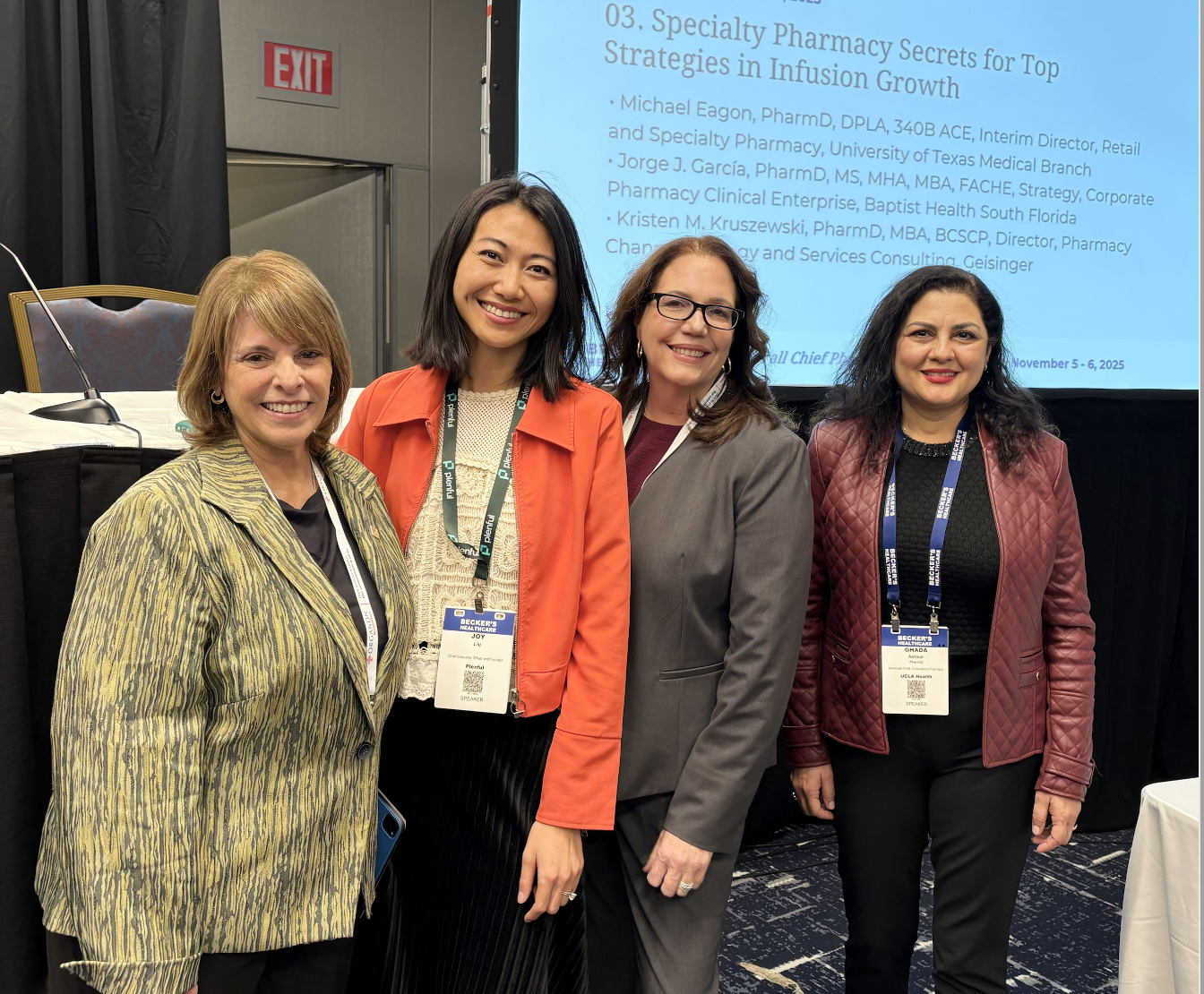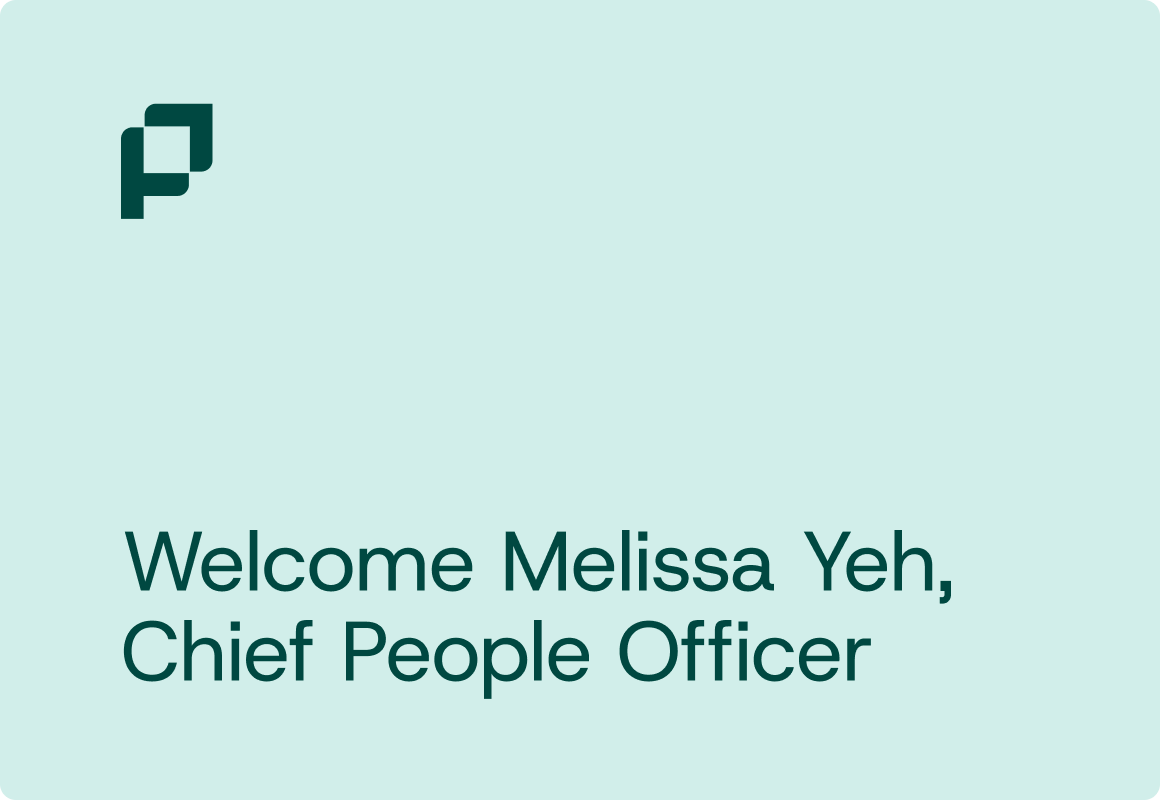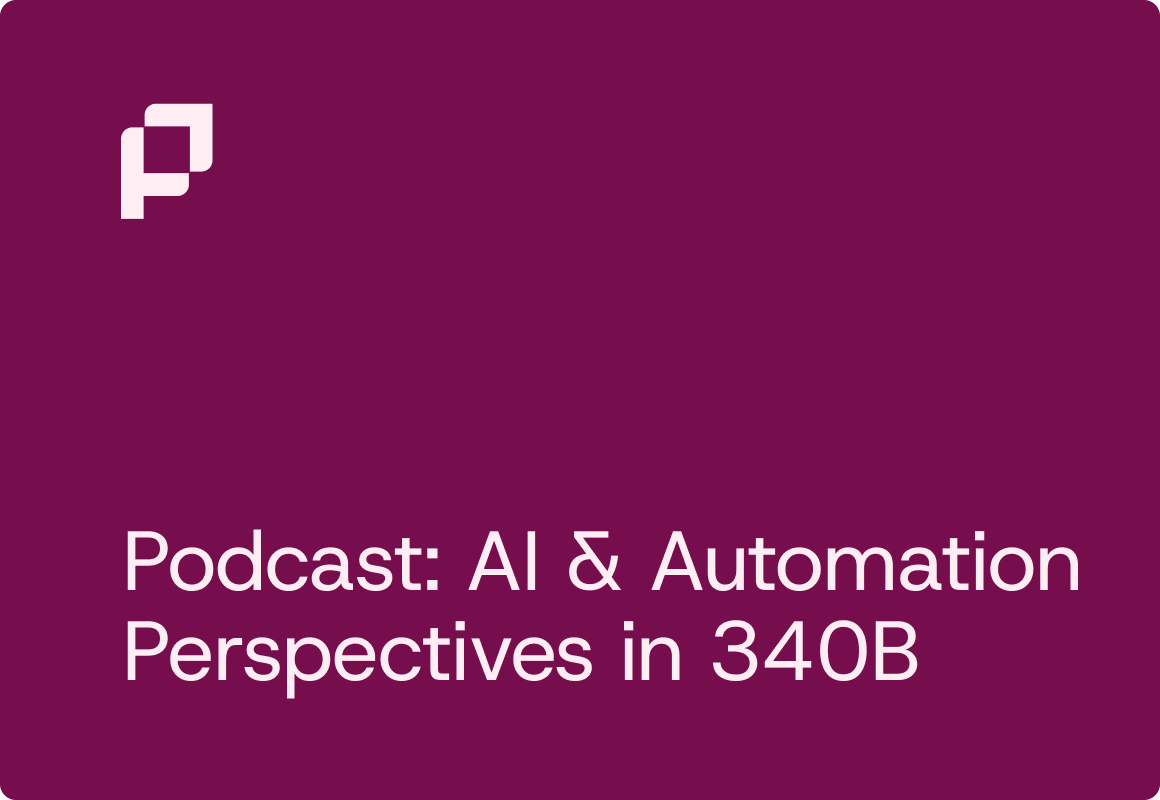Pharmacy on the Frontlines: Takeaways from Becker’s Chief Pharmacy Officer Panel

Last week at Becker’s Chief Pharmacy Officer Summit, the panel “Pharmacy on the Frontlines: Transforming Health Systems for Tomorrow” gathered leaders from UCLA Health, Baptist Health South Florida, Memorial Healthcare System, and Plenful.
Read our quick recap covering the three most popular panel questions that resonated with the hundreds of pharmacy leaders in the room.
The panel included:
- Ghada Ashkar, PharmD, Associate Chief of Ambulatory Pharmacy, UCLA Health
- Madeline Camejo, PharmD, Vice President, Pharmacy Services and Chief Pharmacy Officer, Baptist Health South Florida
- Dorinda Segovia, PharmD, MBA, BCSCP, Vice President and Chief Pharmacy Officer, Memorial Healthcare System
- Joy Liu, CEO, Plenful

1) What keeps you up at night about the future of pharmacy?
Panelists pointed to a collision of rising operational complexity and persistent workforce shortages. Without intentional redesign, manual processes and swivel chair work will continue to drain capacity and morale.
The theme was consistent: shift low-value work off clinicians’ plates and give leaders clear visibility to resolve operational bottlenecks.
Advocacy also surfaced as a growing pressure point. Regulations, scope of practice, and reimbursement are evolving unevenly by state, creating daily friction and a real risk of advocacy fatigue unless pharmacy presents a unified voice.
Additionally, the 340B Rebate Model changes are looming and pharmacy teams are nervous about the additional operational burden and potential financial outcomes. Preparing with the right solutions, partnerships, and support for their 340B teams is top of mind.
2) Where are the untapped AI opportunities?
The room aligned on infusion intake and prior authorization as high-impact starting points. These workflows are historically fax-heavy, paperwork-heavy, and ballooning in volume.
Demand for infusion therapy continues to accelerate. Analysts project 7 to 11 percent annual growth in U.S. infusion services through 2030, fueled by specialty biologics, biosimilars, an aging population, and rising chronic disease prevalence. Intake coordinators are now managing exponentially higher referral and documentation volumes without additional staffing.
The opportunity: end-to-end automation that coordinates and streamlines the entire intake authorization process.
“Infusion care is complex and highly regulated. AI and automation offer a powerful way to streamline intake, benefits verification, and prior authorization, helping patients access therapy faster while ensuring proper reimbursement.” — Joy Liu, Founder and CEO at Plenful
At Plenful, we’re building technology that removes manual, error-prone steps from care coordination, giving infusion teams time back for direct patient support.
Our AI-powered Intake Authorization Management Suite helps infusion teams increase capacity by 4x by automating the most time-consuming steps: referral intake, benefits verification, prior authorization, and claims reconciliation.
3) Imagine it’s 2035 — what’s one big win you hope we’ve achieved in health system pharmacy?
Panelists imagined a future defined by ownership, integration, and stronger patient connection.
Joy shared a vision where pharmacy teams are able to own their care models and workflows, supported by intelligent automation that handles the repetitive back-office work.
“Imagine front-office staff spending over 95 percent of their time with patients while back-office work like claims processing, rebate management, data entry, and missed-opportunity audits is automated and auditable. Pharmacy teams touch a patient about 10 times a year, compared to just two touchpoints across other providers. That’s pharmacy’s advantage. Imagine making those interactions even more meaningful, at scale.”
Other panelists echoed the need for structural and cultural change.
Madeline Camejo described a future where pharmacists are recognized and reimbursed as providers, fully embedded within care teams and compensated for advanced clinical and counseling services.
Dorinda Segovia, PharmD, MBA, BCSCP, emphasized a more data-driven and stable ecosystem where pharmacy is “the connective tissue in healthcare where cost, care, and outcomes converge.”
Together, the panel’s perspectives point to a shared goal: a pharmacy landscape that tightly integrates human expertise with intelligent systems, enabling teams to spend more time where they create the most value – with patients.
Let’s streamline your pharmacy operations
If your organization is exploring AI and workflow automation solutions, let’s connect.
📅 Request a personalized demo to see how we can help your team reduce manual work, support your compliance posture, and unlock revenue.
Related blogs

Welcoming Melissa Yeh, Our New Chief People Officer

Plenful Named to TechCrunch's AI Disruptors 60 List

4x Capacity, 75% Less Manual Work: How We’re Bringing AI-powered Speed to Intake Authorization, End-to-End



